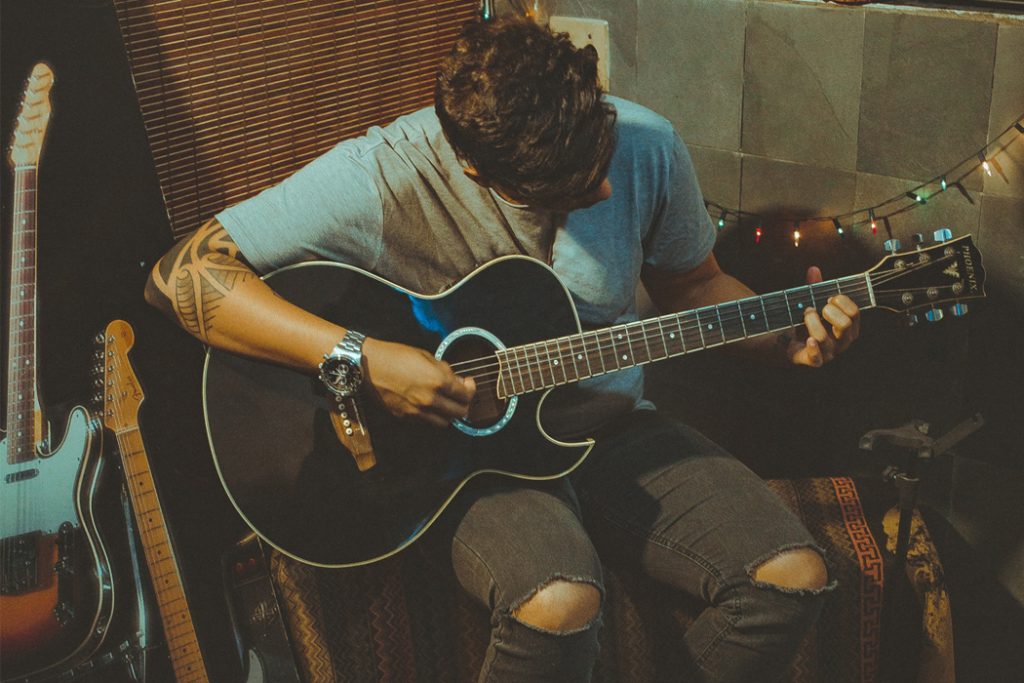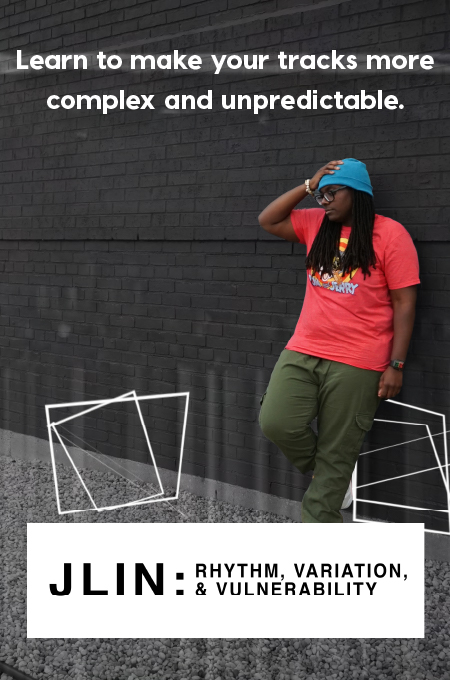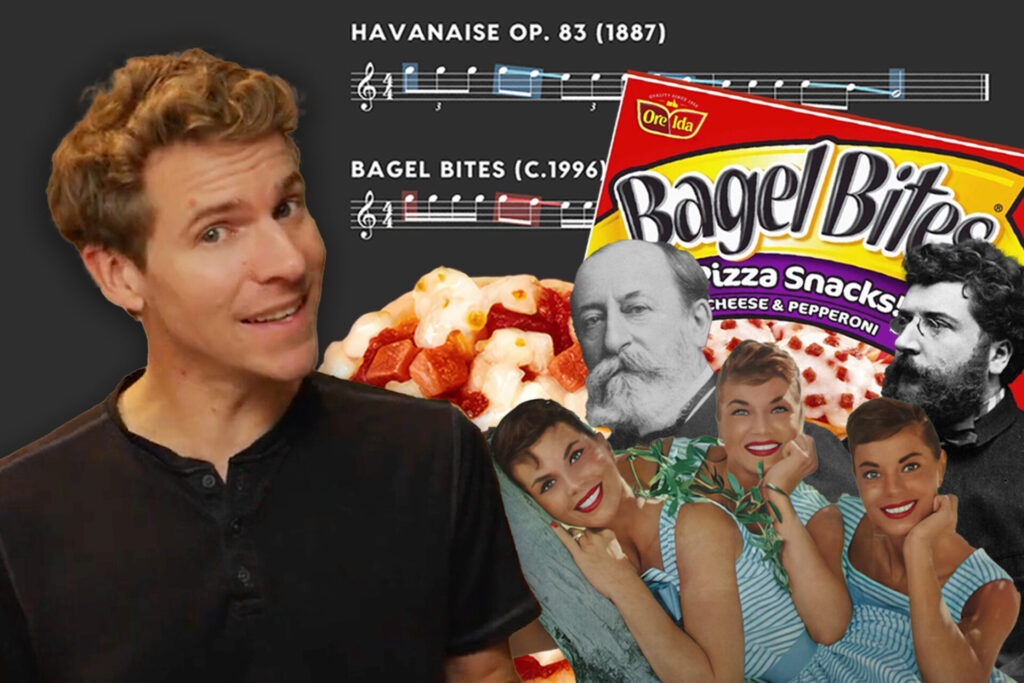
+ Welcome to Soundfly! We help curious musicians meet their goals with creative online courses. Whatever you want to learn, whenever you need to learn it. Subscribe now to start learning on the ’Fly.
When you set out to write new music, what’s on your mind?
We all want to make the best music we can — and what we define as “successful” in songwriting changes dramatically from artist to artist — but there are years worth of hidden creative influences stuffed into our minds during the process. There’s not much we can do to change that unfortunately; our brains are like sponges that soak up and store whatever gives us pleasure.
But we should always try to scrutinize the identity we’ve shaped for ourselves and examine the baggage that comes along with it. Because this baggage might show up in the form of a pernicious inner voice telling us what we can and can’t do during the songwriting process; the invisible referee. “I’m in a ____ band, so therefore, I shouldn’t make____ music.”
This kind of identity-first focus on creating ultimate cohesion in your music will only serve to destroy your ability to allow spontaneity, free exploration, and risk into your work. And your work will stagnate. Here’s how to keep an open mind and ignore the invisible referee.
1. Prioritize expression over expectations.
In case you haven’t noticed, it’s hard to come up with a truly awesome musical idea. You can’t will one into being, and, frustratingly, the more you try to force it, the harder it is to come across. So when you do come across something that sounds great and unique, but it doesn’t fit into your overall plan, can you really afford to throw it away?
No! You’ve got to find a way to make it work!
Tossing out musical ideas that don’t conveniently comport with your “identity” is foolish. Don’t be so concerned with upholding abstract expectations of what your work should be, especially when you stumble across what it could be. Cohesion can help define the sound of an album or specific period in an artist’s career, but letting it be your guide and dictate your choices will strangle your process and lay waste to your best ideas.
2. Approach new musical territories with curiosity and a willingness to explore.
Whether it’s flipping your creative process upside down momentarily, bringing in a new collaborator, or working with new instruments or software, you’ll probably need to make big changes in the way you make music to bring ideas you’re not used to coming up with into fruition, and that’s a good thing. One heck of a good thing.
It can be hard to admit, but it’s often easier for musicians to stick with the same musical aesthetic they carved out early in their careers than take a risk and try something new. If you’re lucky enough to have created something you truly think is compelling and different than what you typically come up with, you should do everything you can to translate it into finished work, even if that means exploring new genres and aesthetics in the process.
3. Collaborate with musicians outside your genre, embrace difference, and discover unexpected combinations.
Ten years ago, most people would’ve probably laughed at the mention of a country-rap hybrid song being one of the most successful singles of all time, let alone even come close to topping the Billboard charts. But here we are. The unbelievable story of Lil Nas X’s ascension proves that modern music favors musicians who embrace risk and newness in their work.
You don’t need to call your friend the polka accordionist to make something outside of your comfort zone; you just need to be willing to say “yes” to what sounds good, even if it might not sound correct.
Yes, the world still needs cohesive musical statements — singular, confident, linear — but musicians stand to benefit the most from opening their minds, from creating in ways that strive for new pathways and pursue risk wherever it takes them, even if it’s toward an unfamiliar genre.
Want to get all of Soundfly’s premium online courses for a low monthly cost?
Subscribe to get unlimited access to all of our course content, an invitation to join our members-only Slack community forum, exclusive perks from partner brands, and massive discounts on personalized mentor sessions for guided learning. Learn what you want, whenever you want, with total freedom.



